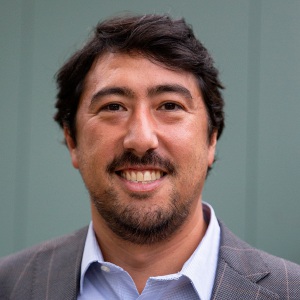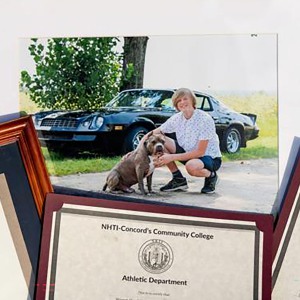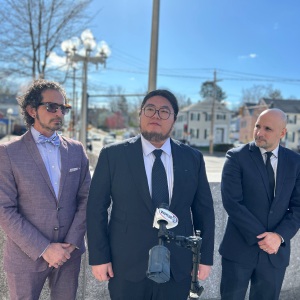Records: Cheshire Medical sanctions were lifted amid more alleged drug diversion
| Published: 04-10-2025 9:00 AM |
Last summer, around the time Cheshire Medical Center nurse Steven Finnell allegedly began taking painkillers meant for patients, officials from the Keene hospital asked state regulators to lift sanctions put in place to prevent drug diversion, regulatory documents show. The state Board of Pharmacy agreed.
But if the allegations against Finnell are true, he began diverting drugs before the hospital’s request, at a time of increased scrutiny from state and federal regulators. And the case raises new questions about Cheshire Medical’s ability to secure its opioid inventory.
The pharmacy board had mandated these sanctions after an earlier case where large quantities of fentanyl solution were lost or unaccounted for at the Dartmouth Health affiliate, according to a July 2022 settlement agreement.
The agreement between the board and Cheshire Medical Center attributed some of those drug losses to a nurse who, as Finnell allegedly did two years later, diverted opioids from the hospital.
Under the settlement, which allowed Cheshire Medical to keep its license to run a pharmacy, the hospital was told to tighten its oversight of controlled substances and hire an outside monitor to do regular audits. Hospital officials were directed to share these third-party reports with the pharmacy board for the agreement’s three-year duration.
But roughly two years in, on Aug. 21, 2024, Cheshire Medical asked the board to lift the restrictions, pharmacy board minutes from that meeting show. The board granted this request at the meeting, saying in its ruling that the hospital had complied with the agreement in good faith.
As detailed in the state nursing board’s emergency suspension of his license, Finnell’s alleged diversion of an unknown quantity of opioids starting in June 2024 came to light the following January.
Cheshire Medical Center did not say where in the hospital Finnell worked or what protocols he allegedly breached, so it’s hard to know if continuing the sanctions would have caught his alleged diversion sooner.
Article continues after...
Yesterday's Most Read Articles
 After more than 45 years, Upper Valley guitar shop closes
After more than 45 years, Upper Valley guitar shop closes
 On the trail: Gov. Ayotte says she delivered on her promises in her 100 days in office. Not everyone agrees
On the trail: Gov. Ayotte says she delivered on her promises in her 100 days in office. Not everyone agrees
 Newbury,Vt., man who killed daughter ruled to be ‘not guilty by reason of insanity’
Newbury,Vt., man who killed daughter ruled to be ‘not guilty by reason of insanity’
 Claremont City Council votes unanimously to fire city manager
Claremont City Council votes unanimously to fire city manager
 Hundreds of alumni sign letter urging Beilock, Dartmouth to make a stand for academic freedom
Hundreds of alumni sign letter urging Beilock, Dartmouth to make a stand for academic freedom
 Fill ’er up: New Hampshire considers allowing patrons to pour their own alcohol
Fill ’er up: New Hampshire considers allowing patrons to pour their own alcohol
Finnell, who according to Cheshire Medical Center no longer works at the hospital, previously declined to comment.
State-level sanctions weren’t the only increased oversight triggered by the earlier diversion of fentanyl. A June 2023 settlement agreement with regulators from the U.S. Drug Enforcement Administration includes monitoring requirements and remains in place.
Diversion, or drug theft, in medical facilities is a serious and thorny problem in health care. Hospitals need an inventory of strong sedatives and painkillers, many of them highly addictive, as part of patient care.
These drugs enter hospitals regularly and in significant quantities, and several personnel, from the pharmacy staff who receive the shipment to the nurses who deliver these medications to patients, handle them. Diversion can happen at any point during the process and can involve people in different parts of the hospital.
The extent of the problem is unknown because diversion, even when it is discovered, is often under-reported. The ASHP, the largest group of hospital pharmacy professionals in the U.S., estimates that 10 to 15 percent of health care workers misuse alcohol or drugs at some point in their career, a prevalence similar to in the general population. But it’s much more difficult to determine exactly how many take prescription drugs not meant for them.
ASHP’s 2022 guidelines for preventing drug diversion detail some scenarios. Hospitals have electronic systems to track drugs from the moment they arrive. But diversion can happen when professionals administer partial doses to patients, while logging the full amounts on medical records, as the state pharmacy board alleges Finnell did. In other cases, providers might prescribe and dispense themselves opioids or order medications for patients who have already been discharged.
These articles are being shared by partners in the Granite State News Collaborative. For more information, visit collaborativenh.org.






 Activist with Upper Valley ties remains detained in Vermont with a hearing set for next week
Activist with Upper Valley ties remains detained in Vermont with a hearing set for next week NH 21-year-old dies amid the worst flu season since 2009
NH 21-year-old dies amid the worst flu season since 2009 ‘A bit Kafkaesque’: Federal judge spars with government lawyer over status of Dartmouth international student
‘A bit Kafkaesque’: Federal judge spars with government lawyer over status of Dartmouth international student
